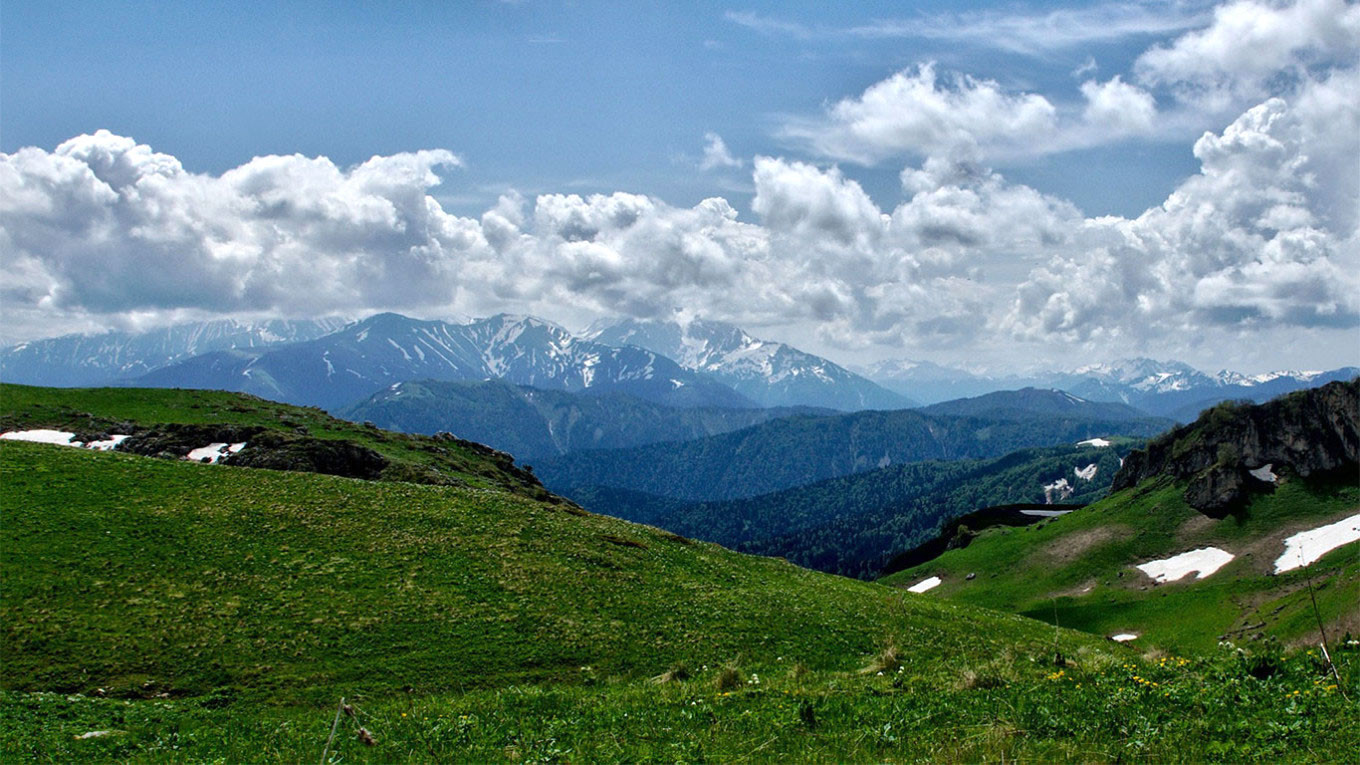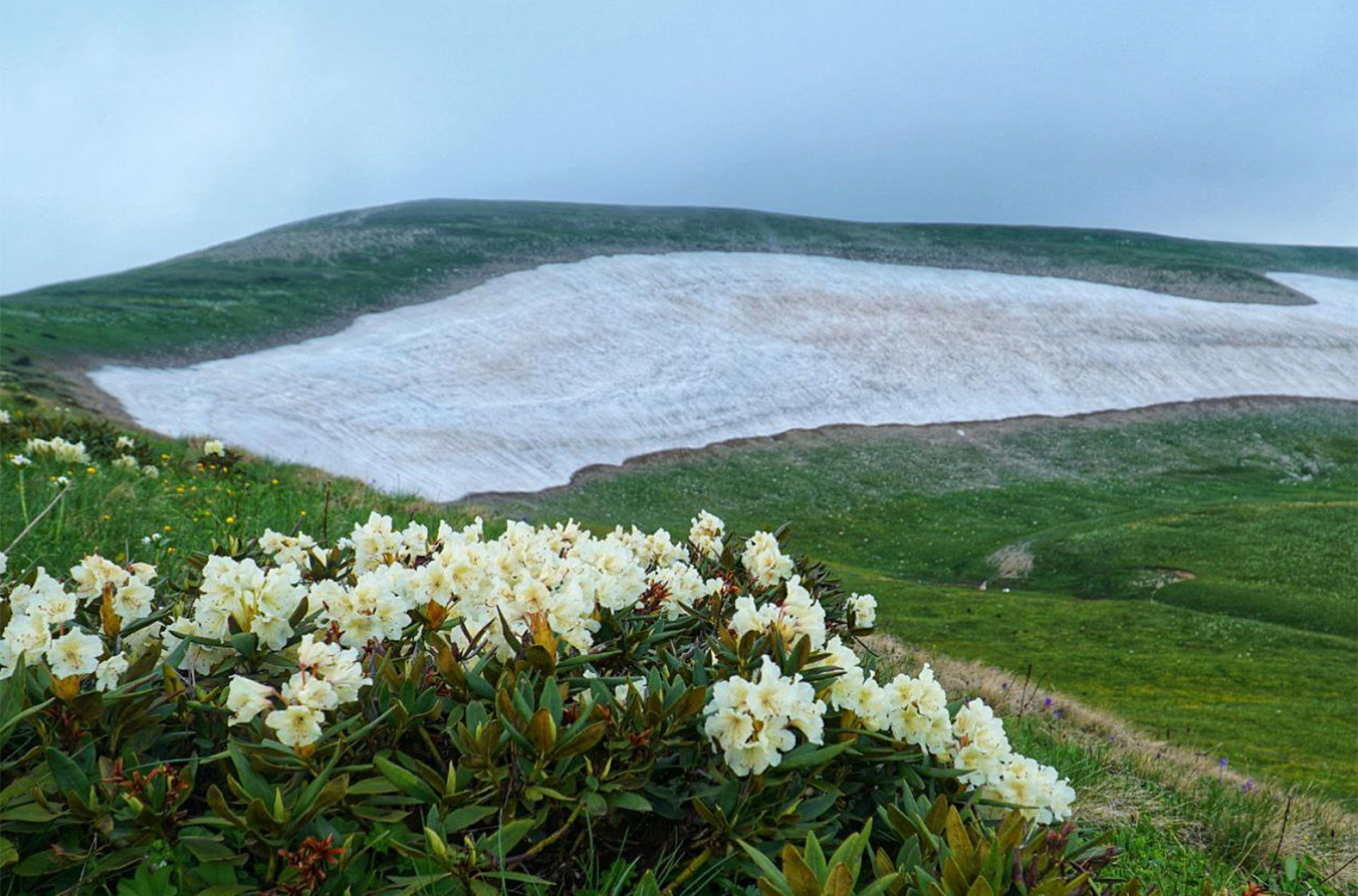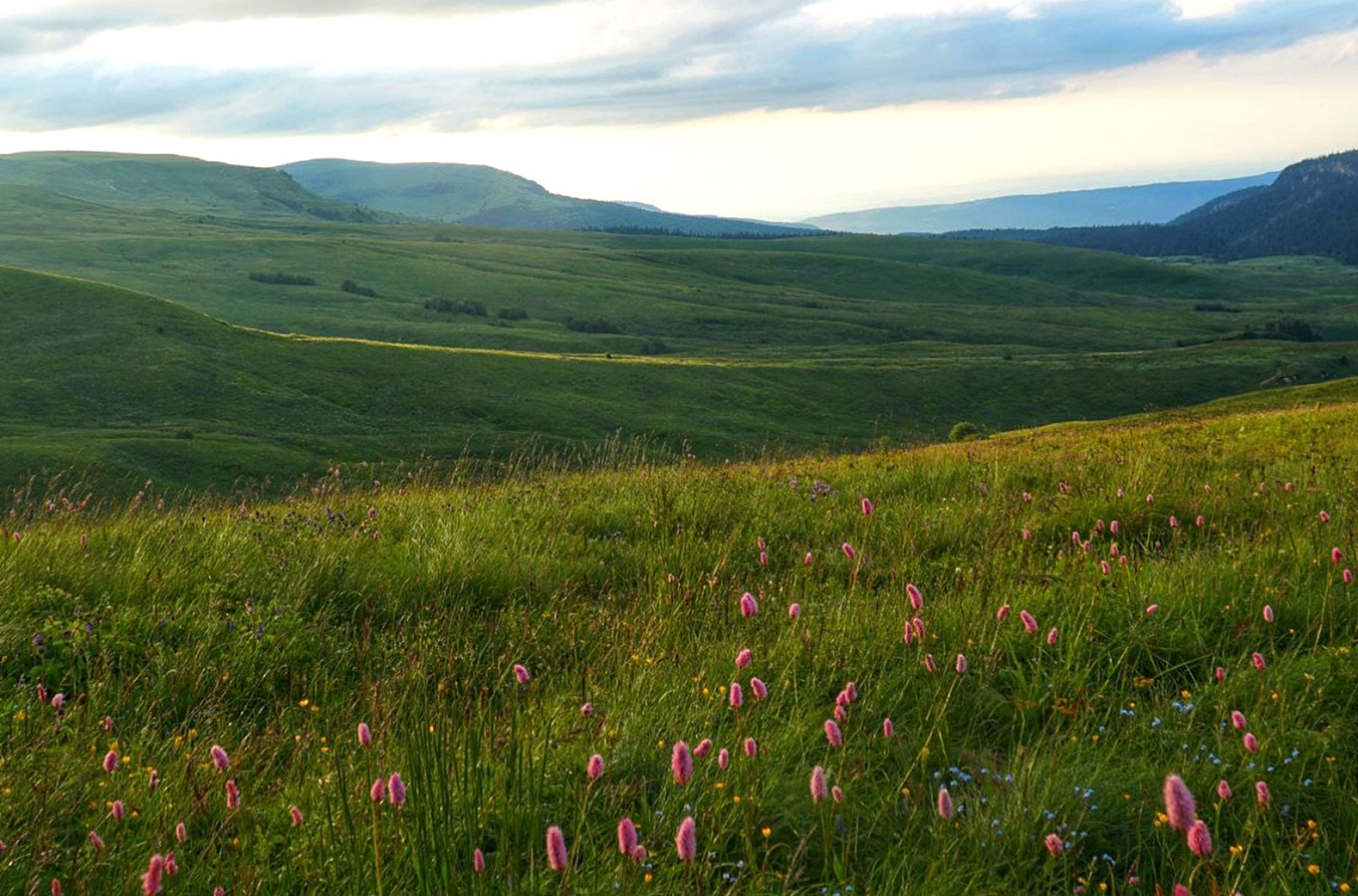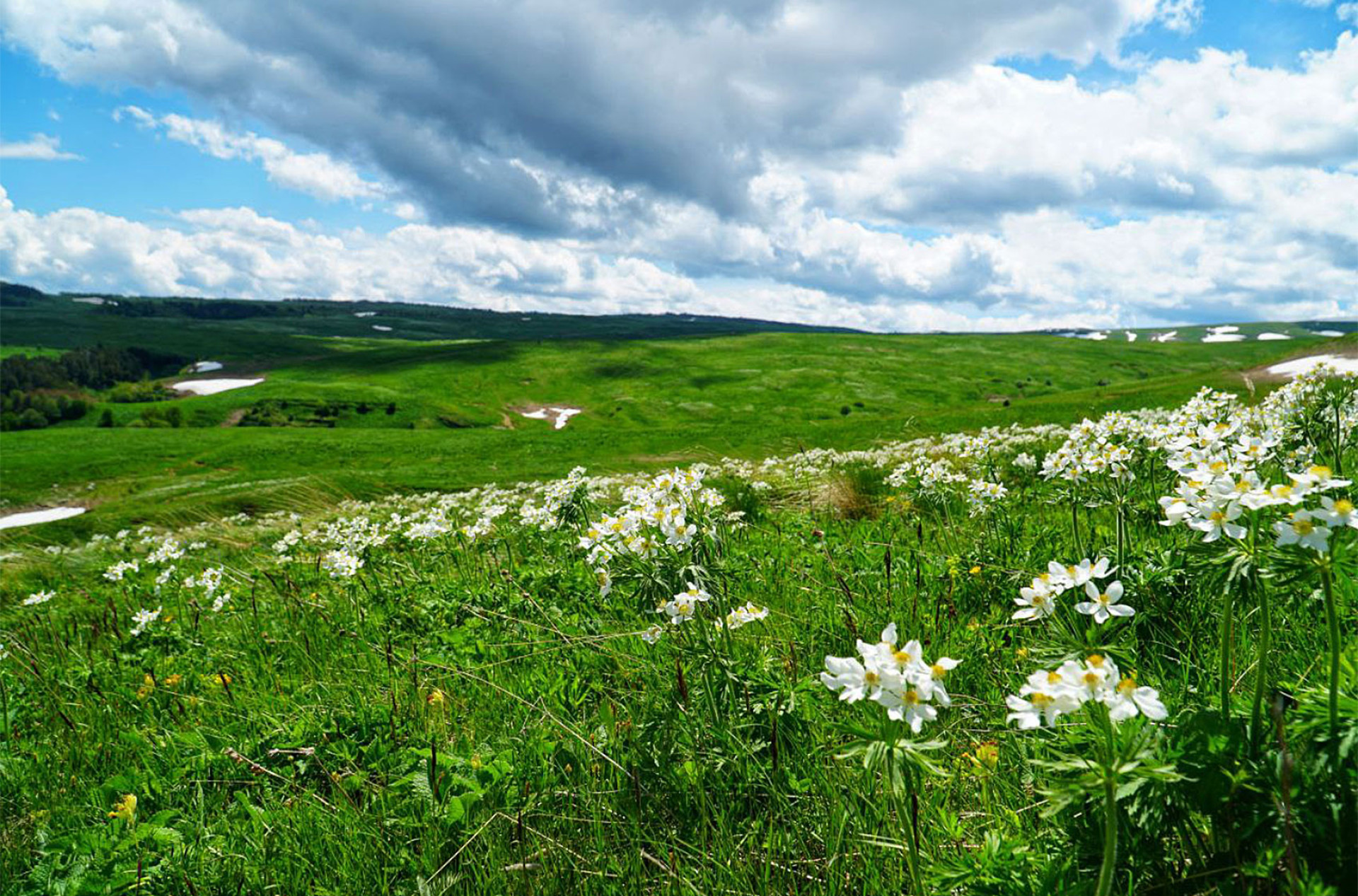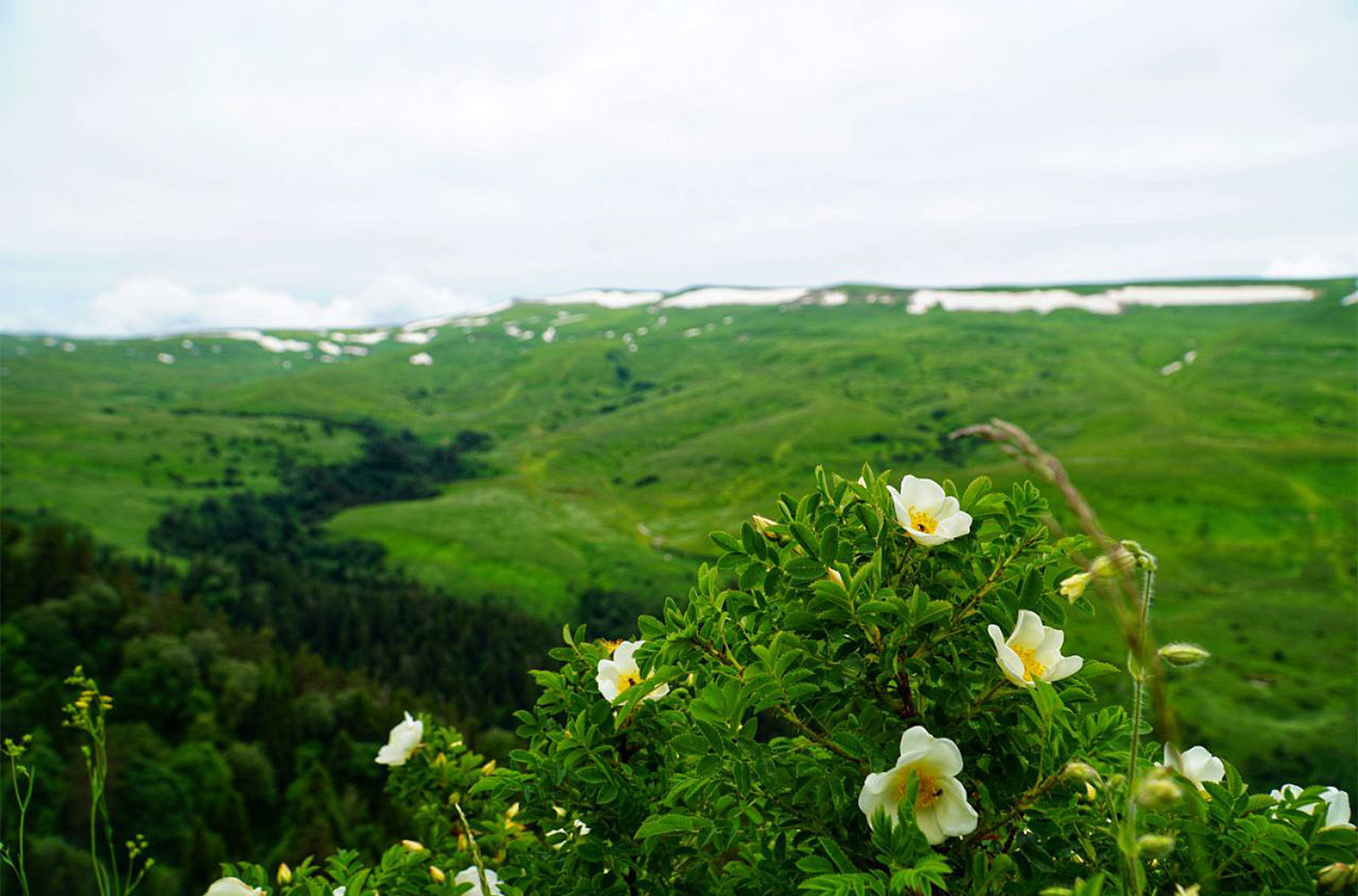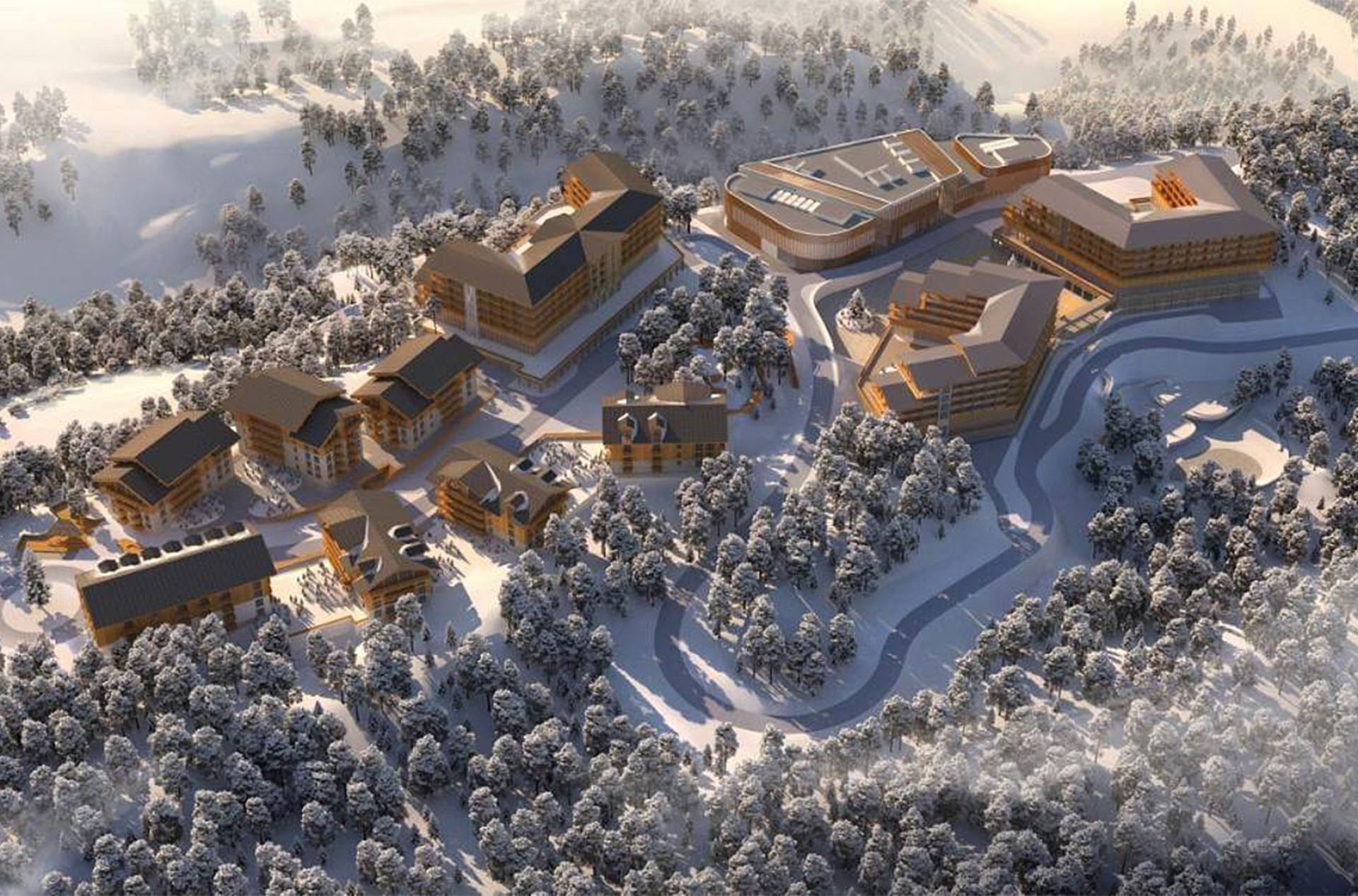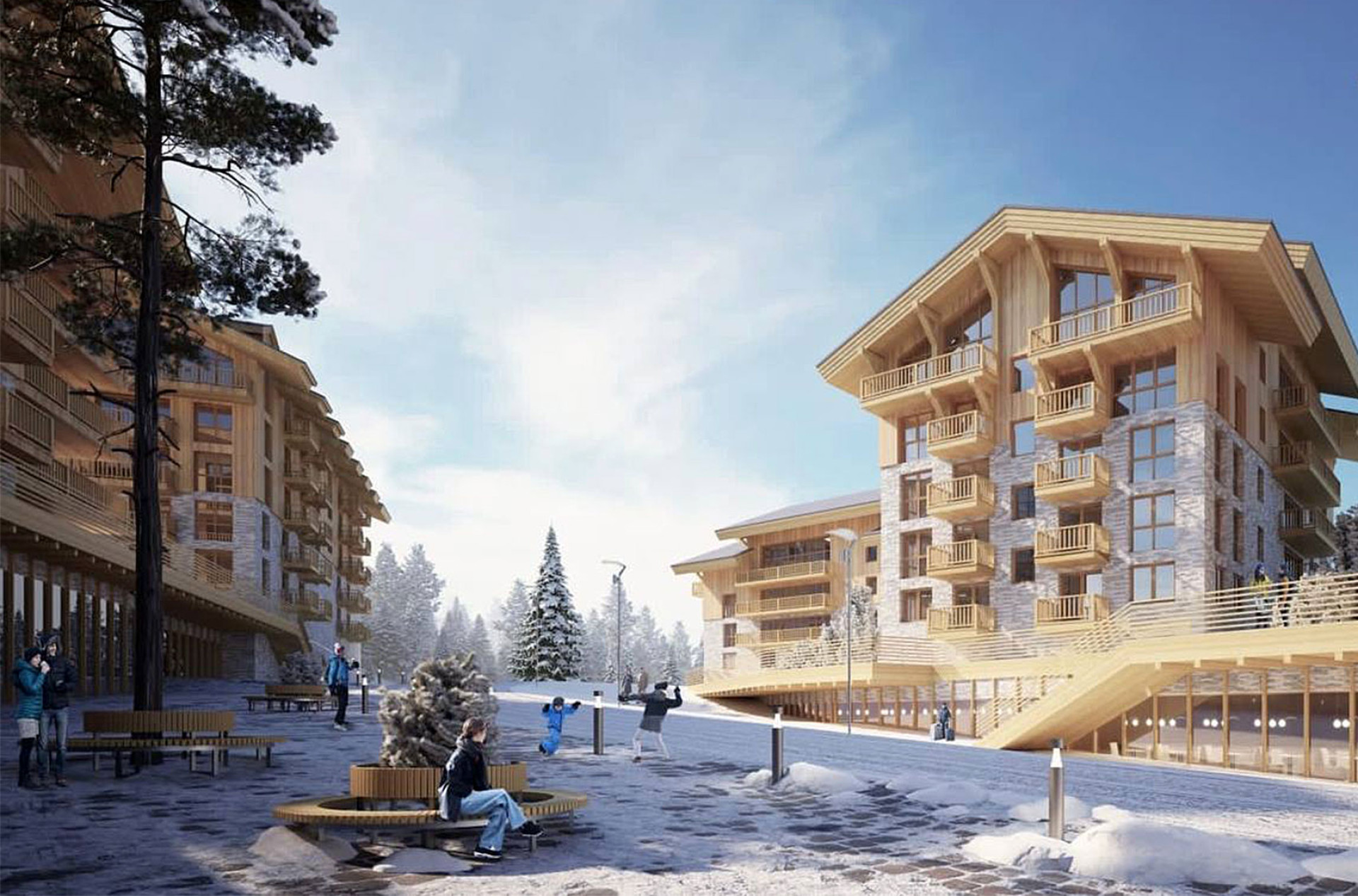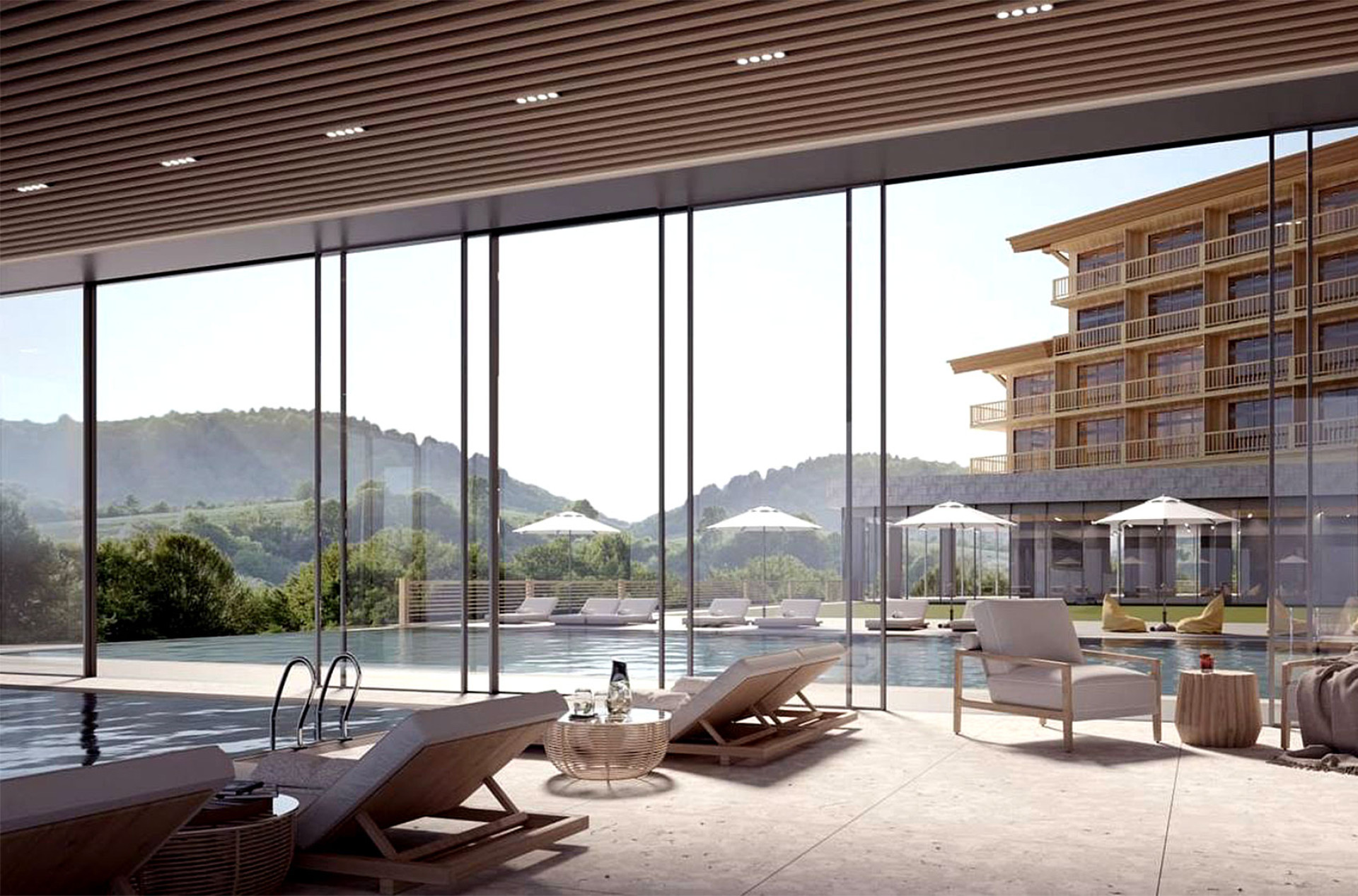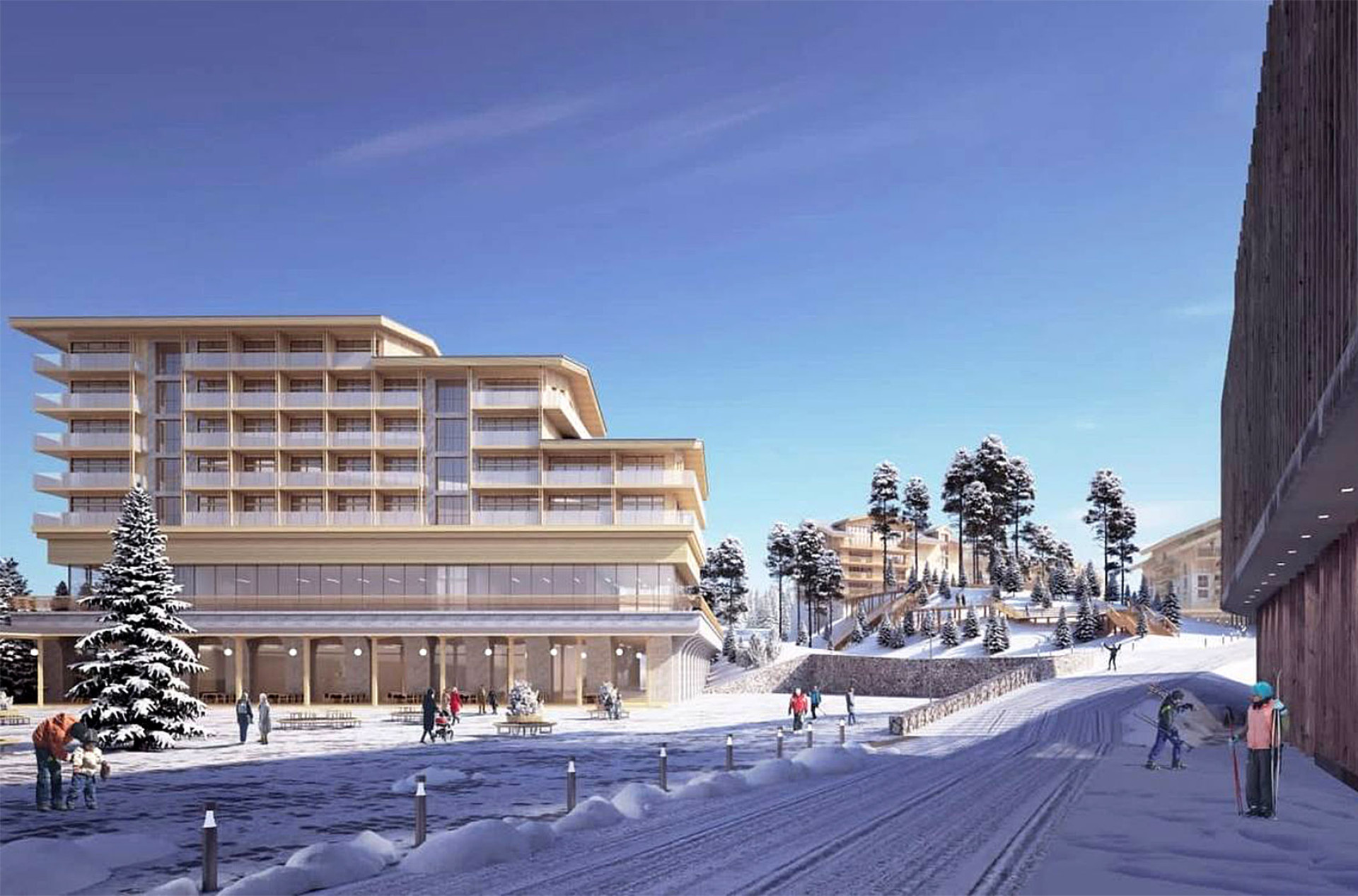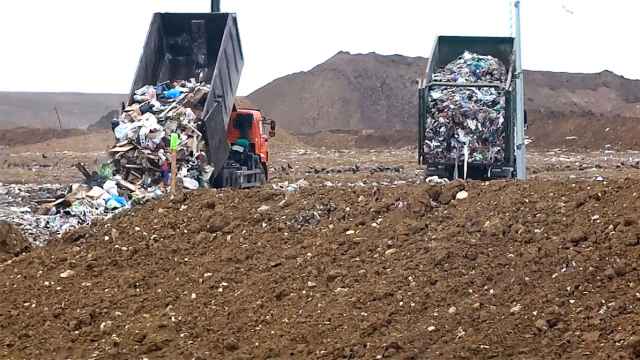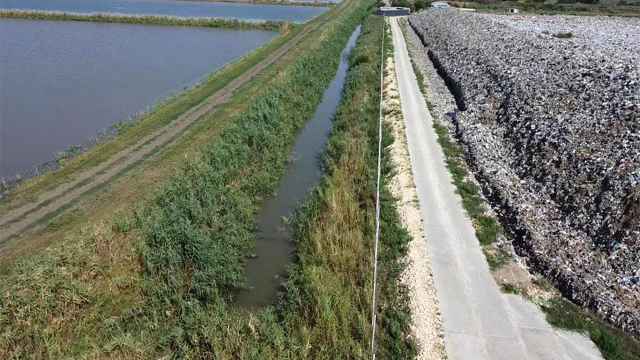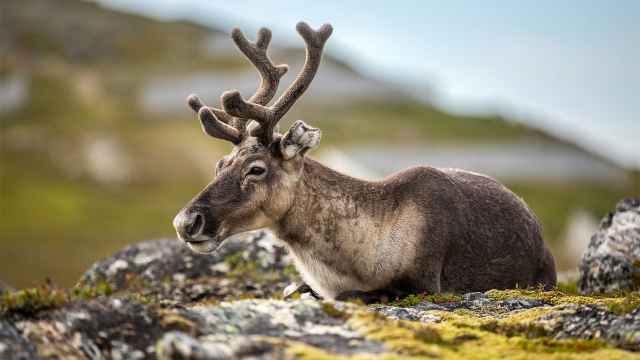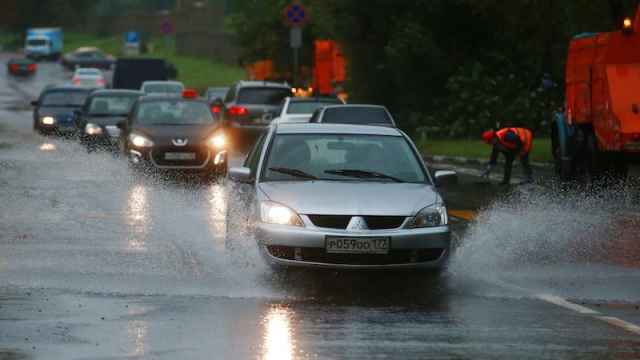Rising high above Russia’s Black Sea coast, the Western Caucasus mountain range is home to a pristine alpine ecosystem that earned it UNESCO World Heritage Site status.
“The Western Caucasus has a remarkable diversity of geology, ecosystems and species,” UNESCO said when inscribing the site in 1999. “Along with the Virgin Komi World Heritage site, it is the only large mountain area in Europe that has not experienced significant human impact.”
This untouched natural site is now under threat from a luxury ski resort being built partly within its borders — a project that is sparking an outcry from both the public and UNESCO’s oversight body.
The Lagonaki ski resort will encroach onto the Lagonaki Plateau, a picturesque site in the republic of Adygea that comprises part of the Western Caucasus World Heritage site.
“Figuratively speaking, my heart ached for this place," said activist Bogdan Zakopayko, who joined the Lago-Naki Zhivi (“Long Live Lagonaki”) movement in 2021.
“I am a tourist hiker, and from a certain time in my life, I have visited Lagonaki every year. These places are dear to me,” Zakopayko told The Moscow Times.
Earlier this year, the grassroots initiative launched a campaign of appeals to Russia's Investigative Committee, the Prosecutor General's Office and State Duma lawmakers, urging citizens to join the call to halt the construction in Lagonaki.
“How long will regional officials continue to squander public funds on recreational zones for the wealthy in protected areas!” the Lago-Naki Zhivi letter said of the project, which is partially bankrolled by state tourism corporation Tourism.RF.
“What do all these discussions about the Motherland and eternal values mean when, against the backdrop of a very difficult situation in the country, there is a fantastic and irresponsible squandering of state funds?!" the letter continued.
“Not to mention that it is unethical when some are at war, others are building water parks, spa zones and golf clubs!"
The year-round "mountain eco-resort" is expected to open to visitors next year, with 37 kilometers of ski slopes to be built by 2030 and a total of 642 hotel rooms eventually completed.
One business that stands to reap benefits from the project is Rezort Investment, an investor company linked via intermediaries to former federal agriculture minister and ex-Krasnodar region Governor Alexander Tkachyov, according to the environmental news outlet Smola.
While local authorities claim that only cableways and ski slopes will be built on the Lagonaki Plateau and major construction sites such as hotels will sit outside it, the planned ski resort has nonetheless alarmed the World Heritage Committee (WHC).
Last year, the intergovernmental supervisory body called the Lagonaki Plateau an “essential element” of the Western Caucasus World Heritage Site given its vibrant biodiversity, including many endemic species.
“Confirmation that the construction of a ski resort in the Lagonaki area is still being considered is … of utmost concern,” WHC said in its decision in 2023, adding that large-scale development puts the Western Caucasus at risk of appearing on the List of World Heritage in Danger.
Disturbed wildlife
In a notable display of support for the public initiative, over 200 Russian scholars signed an open letter to President Vladimir Putin urging him to protect Lagonaki from development.
They stressed that the local ecosystem, home to nearly 200 rare species of animals, plants and fungi, is especially vulnerable — and warned it could take centuries to recover from the planned construction.
Although the extent of potential damage to nature is unclear at this stage, it is expected “in any case," said an environmental expert who requested anonymity due to their affiliation with a group that the Russian authorities have targeted.
The expert said the constant maintenance needed for ski slopes and the year-round presence of humans will disturb native wildlife.
“Hoofed animals such as alpine chamois will leave because they simply won't be able to stay, at least in the [tourist] season — but the season will be year-round, with skiing in winter and tourist groups in summer."
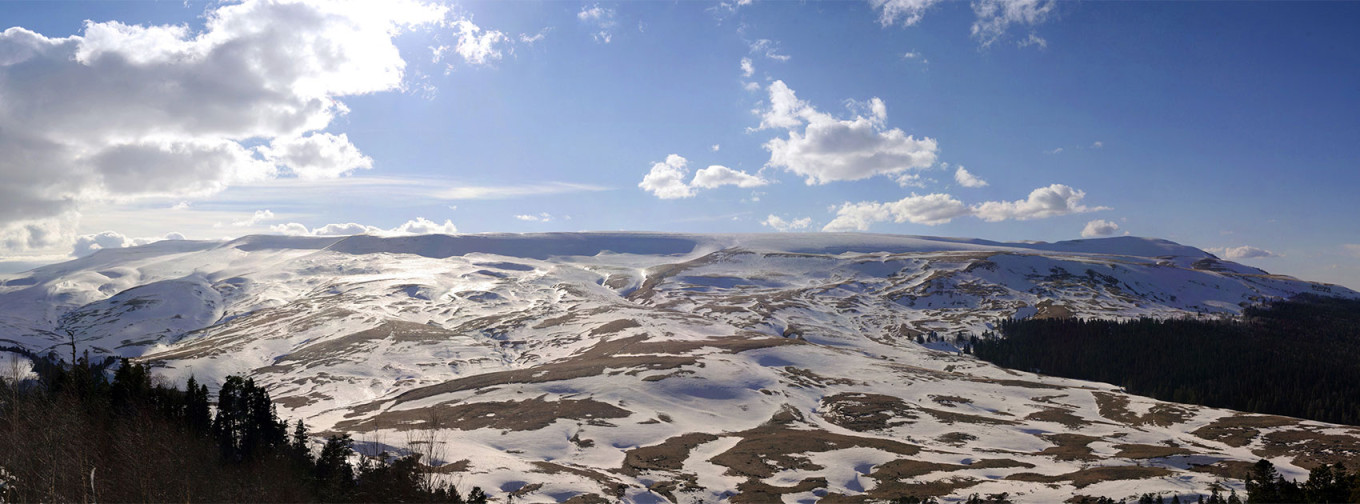
Resort management will need to install snowmaking cannons for skiing on Lagonaki’s slopes to remain possible during winter, as strong winds tend to blow away the area’s natural snow.
A video shared online in February showed metal lightning poles torn apart by hurricane-force winds on the access road to the future resort, raising concerns about the stability of future cableways and other structures.
Artificial snow systems, along with systems supplying water to them, would have a "very serious impact" on the ecosystem, the anonymous expert said.
Because the Lagonaki Plateau sits on unstable karst formations, the project risks creating sinkholes and other dramatic changes in the landscape.
"Plus, there's a large number of rare plants that will inevitably be physically destroyed by any construction," the expert concluded.
Turbulent road
In an apparent response to these concerns, authorities have stressed that the Lagonaki resort will boost the local economy and attract tourist flocks “without harming the environment.”
"The Lagonaki resort … will be the hallmark of our region. We aim to create a beautiful, aesthetic and comfortable resort," said the republic of Adygea’s head Murat Kumpilov in 2023.
The project has already undergone several changes since the Russian invasion of Ukraine.
The press service of Accor — a French hospitality company whose hotel brands were featured in the initial project proposal circulated online in 2023 — confirmed to The Moscow Times that it has no development plans within the Lagonaki ski resort after canceling the expansion of its hotels in Russia in 2022.
The project has nevertheless persisted. In October 2023, Kumpilov said it would create a total of 2,000 jobs. The Russian government’s Telegram channel has noted only 650 new jobs so far.
The majority of these work opportunities are likely to be low-paid positions such as waitressing and cleaning, as locals from nearby small villages lack the English skills necessary for higher-paying jobs, Zakopayko said.
Moreover, most people in those villages are already employed. At the same time, Adygea’s capital of Maykop and the town of Adygeysk are experiencing a population exodus as locals struggle with average monthly salaries of 20,000 rubles ($220) per month or a complete lack of work.
“We believe that the initial focus should be on creating jobs … where the need is greater such as in Maykop and Adygeysk, to prevent people from leaving,” Zakopayko said.
“Please develop the economy where people live, not high up in the mountains, destroying the reserve and the region's ecology.”
Due to “colossal problems” with the ski resort’s construction and operation, activists remain uncertain if the project will take off by 2025 — or at all.
“Most of all, we fear that they will come, create damage and in the end, still not build anything,” Zakopayko said.
“And all will simply be left in ruins with destroyed nature.”
A Message from The Moscow Times:
Dear readers,
We are facing unprecedented challenges. Russia's Prosecutor General's Office has designated The Moscow Times as an "undesirable" organization, criminalizing our work and putting our staff at risk of prosecution. This follows our earlier unjust labeling as a "foreign agent."
These actions are direct attempts to silence independent journalism in Russia. The authorities claim our work "discredits the decisions of the Russian leadership." We see things differently: we strive to provide accurate, unbiased reporting on Russia.
We, the journalists of The Moscow Times, refuse to be silenced. But to continue our work, we need your help.
Your support, no matter how small, makes a world of difference. If you can, please support us monthly starting from just $2. It's quick to set up, and every contribution makes a significant impact.
By supporting The Moscow Times, you're defending open, independent journalism in the face of repression. Thank you for standing with us.
Remind me later.


